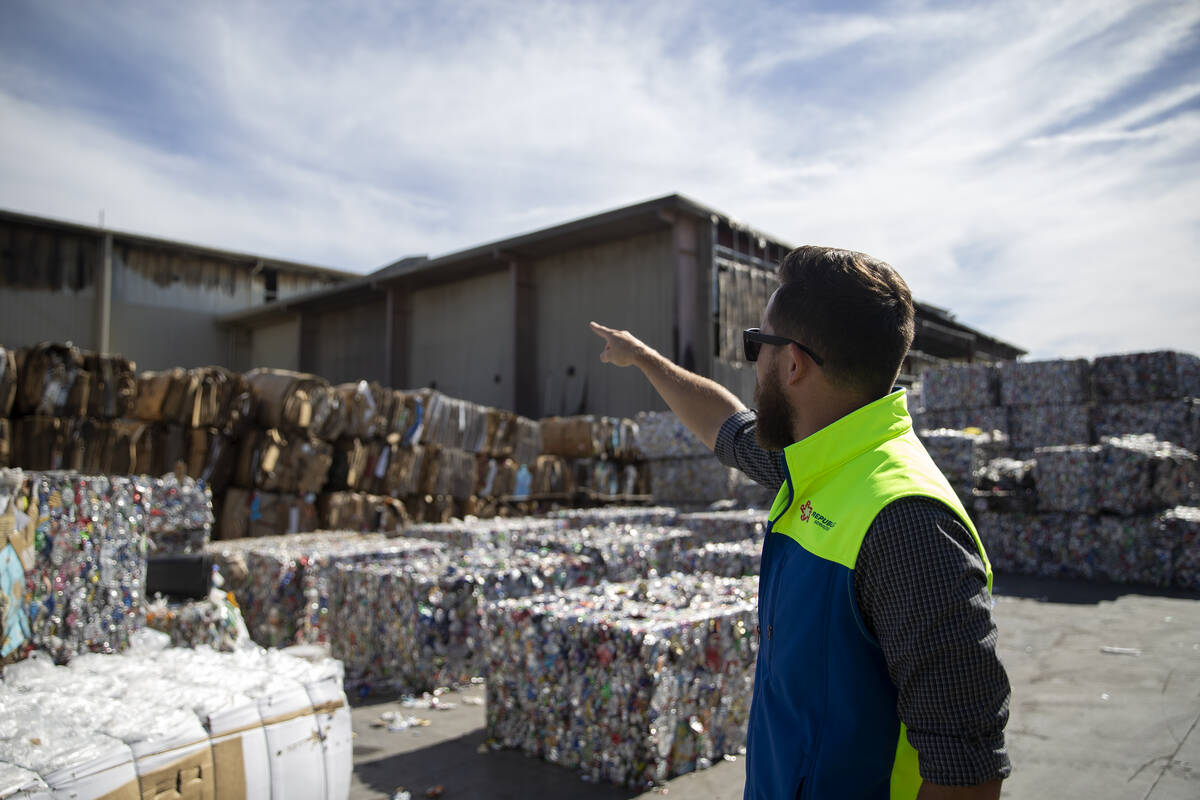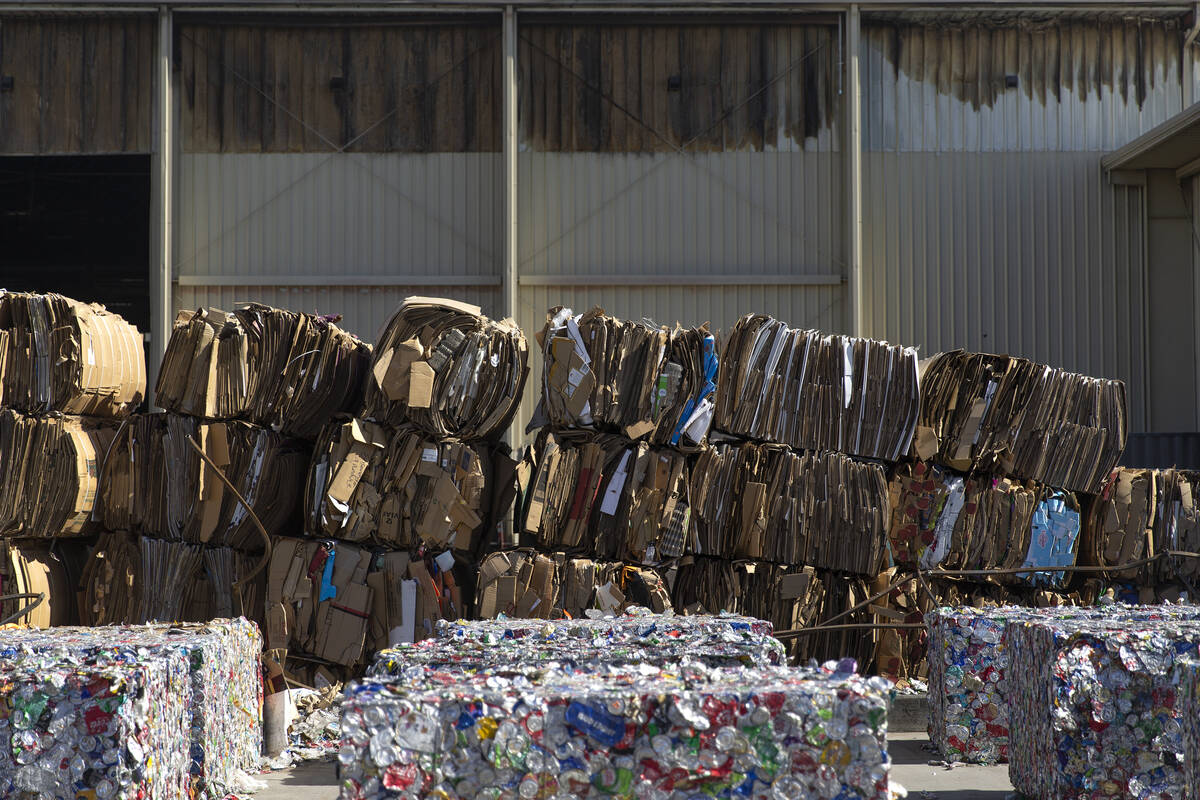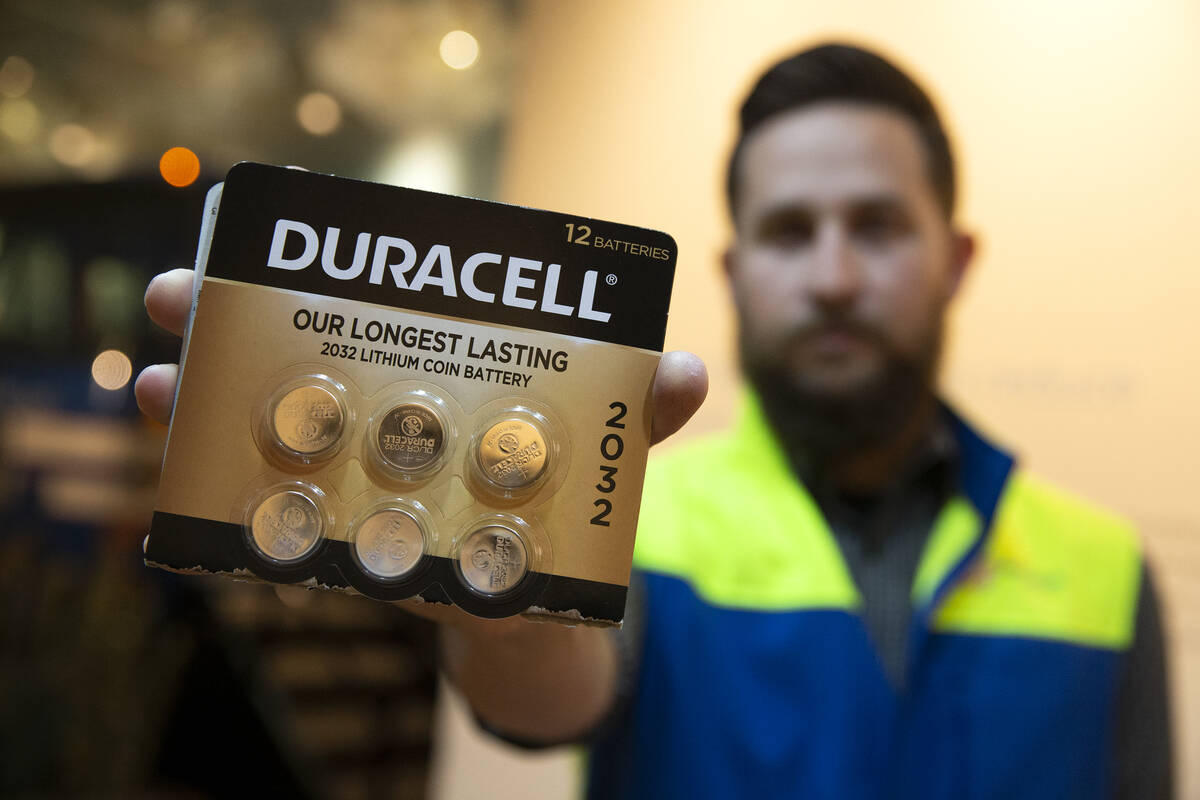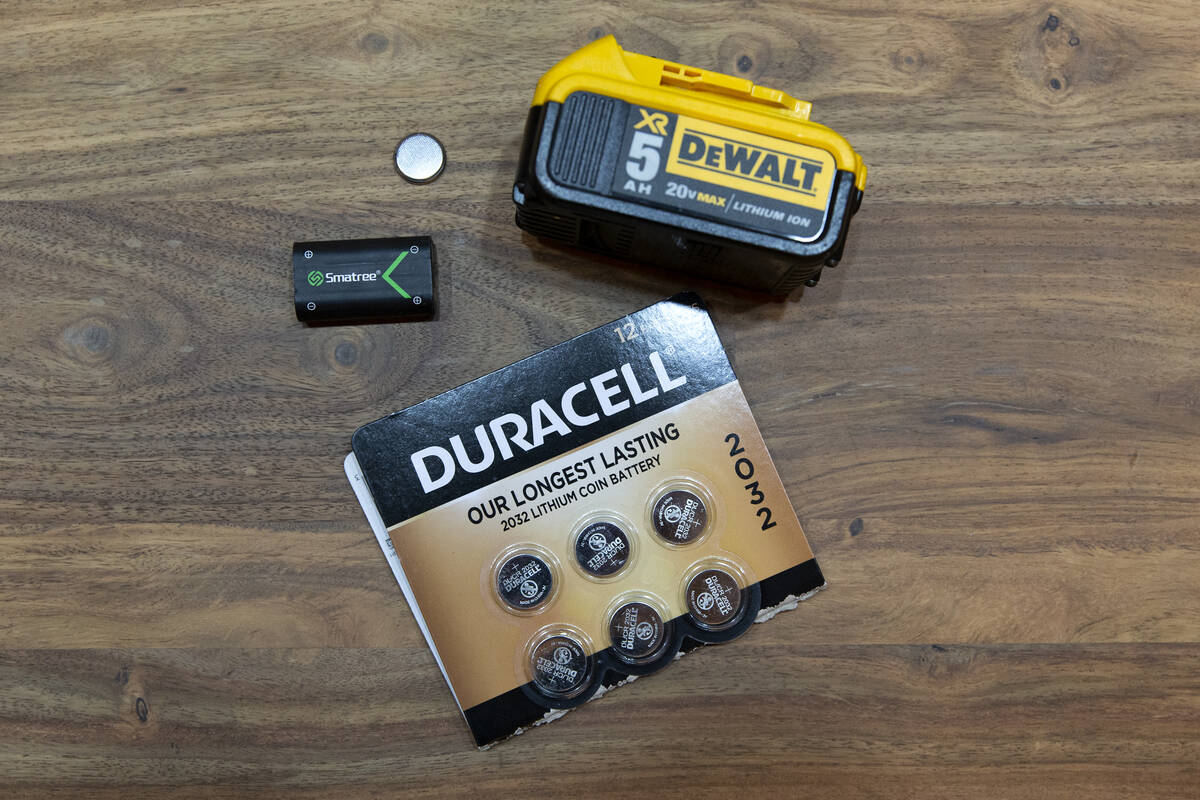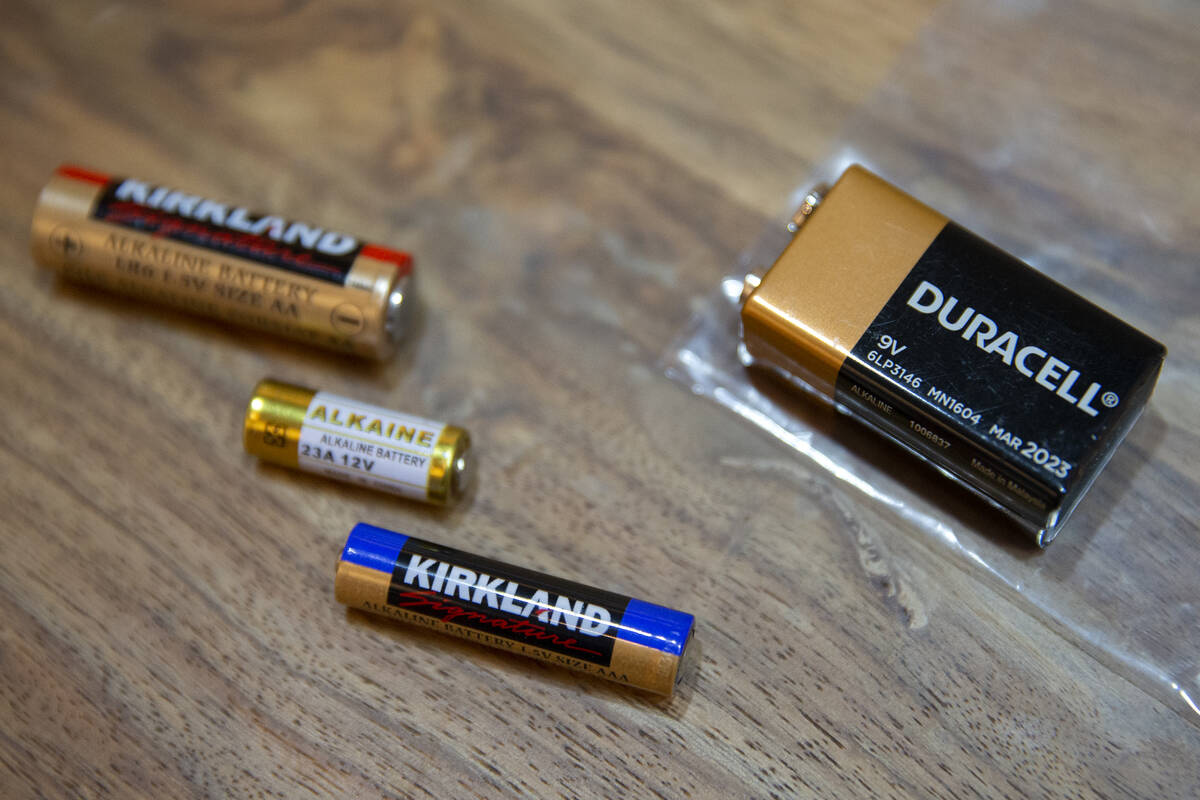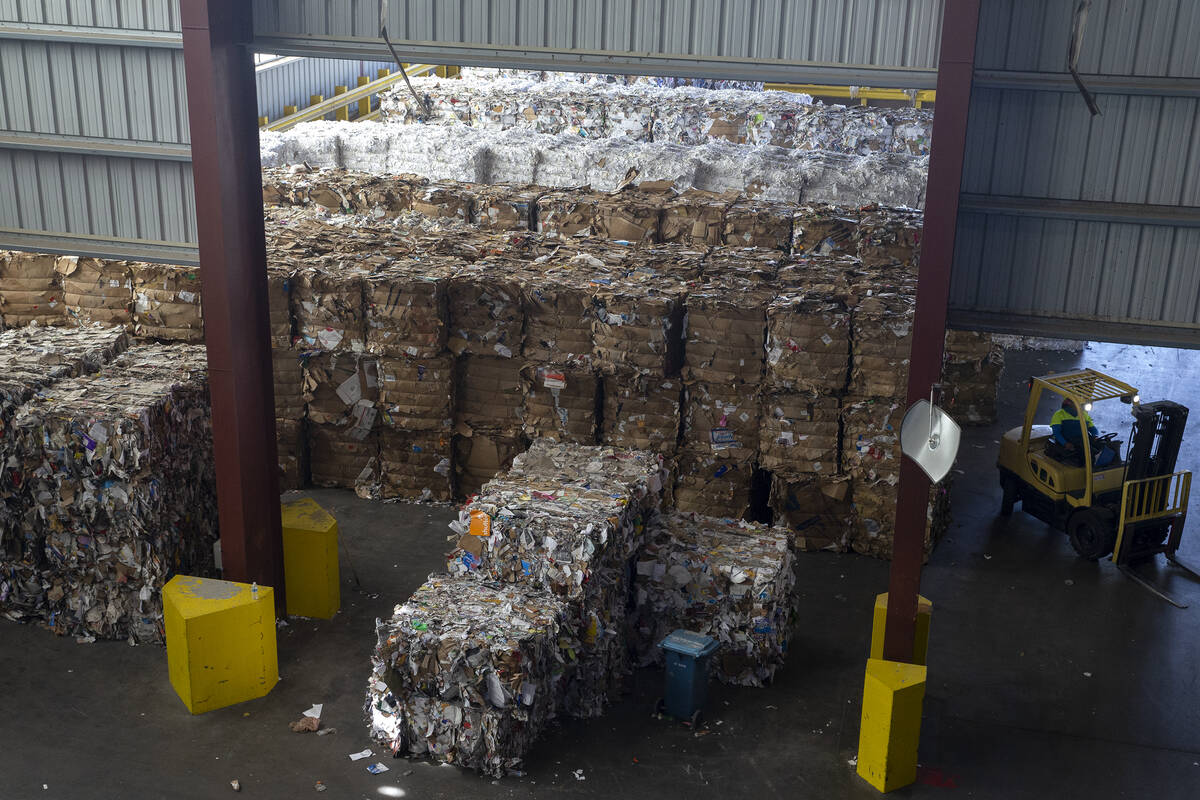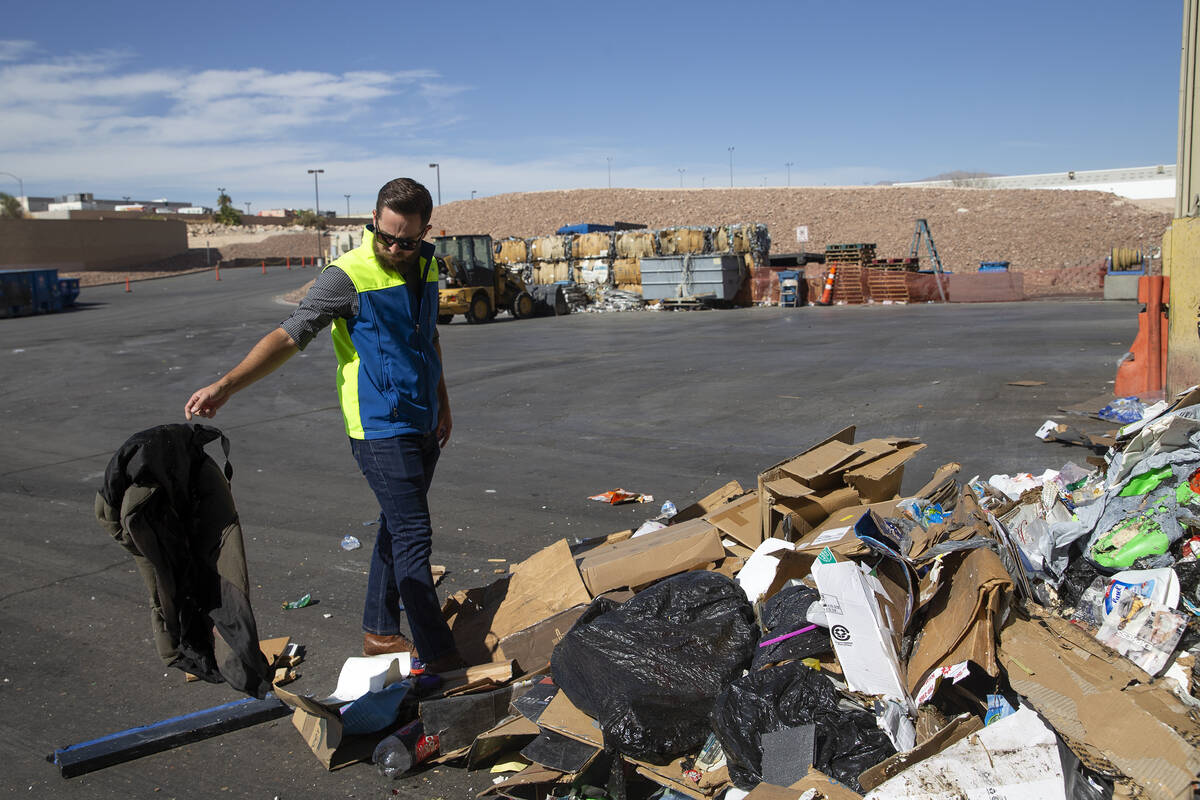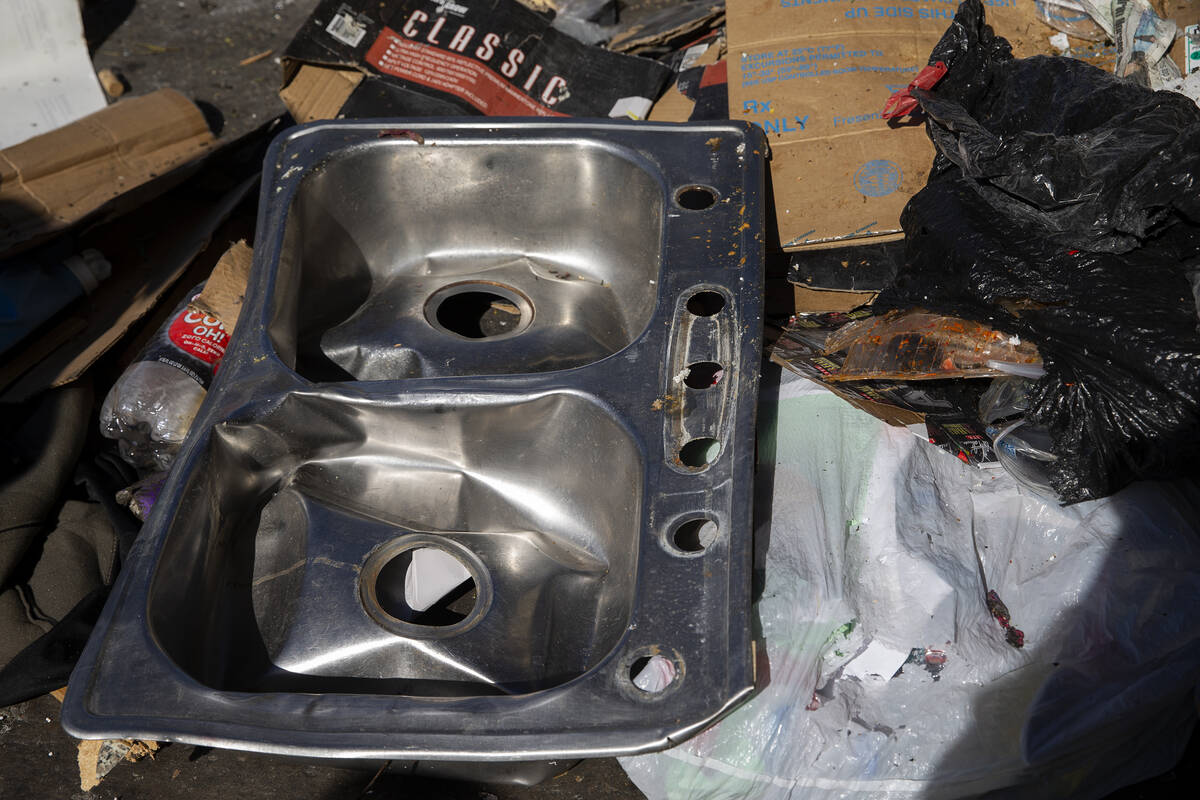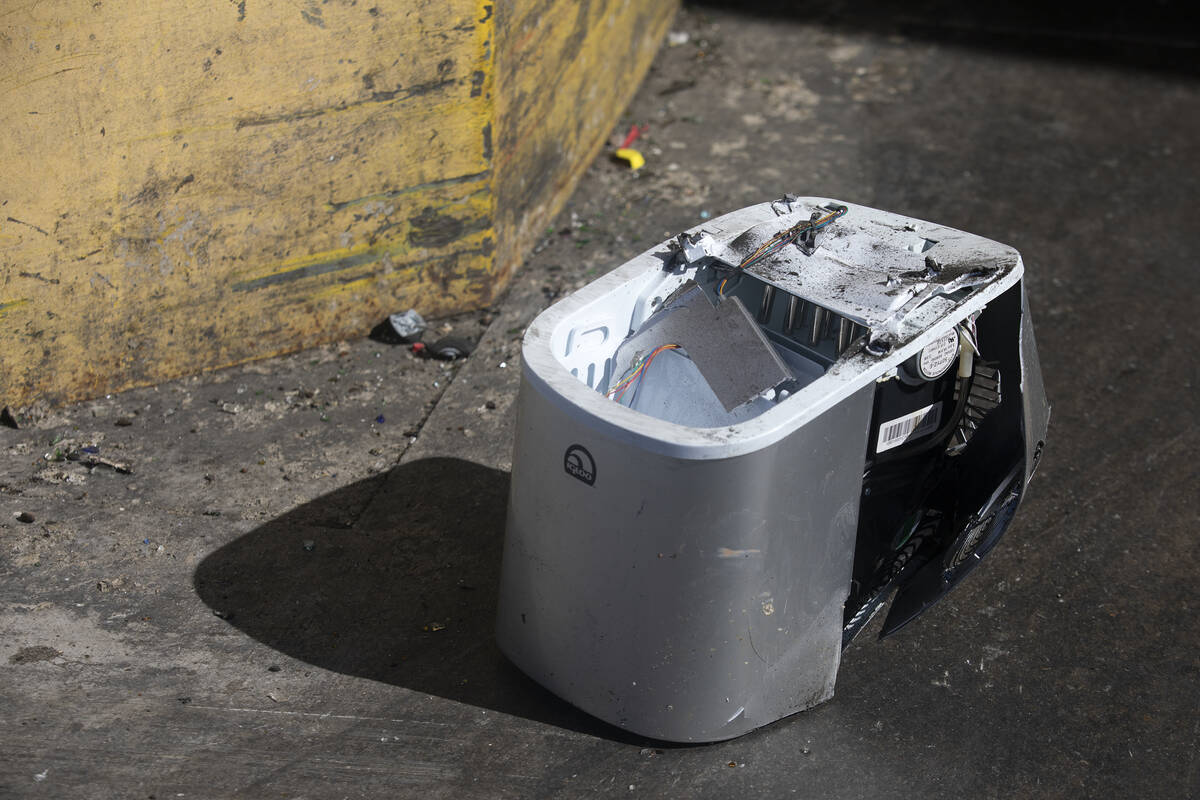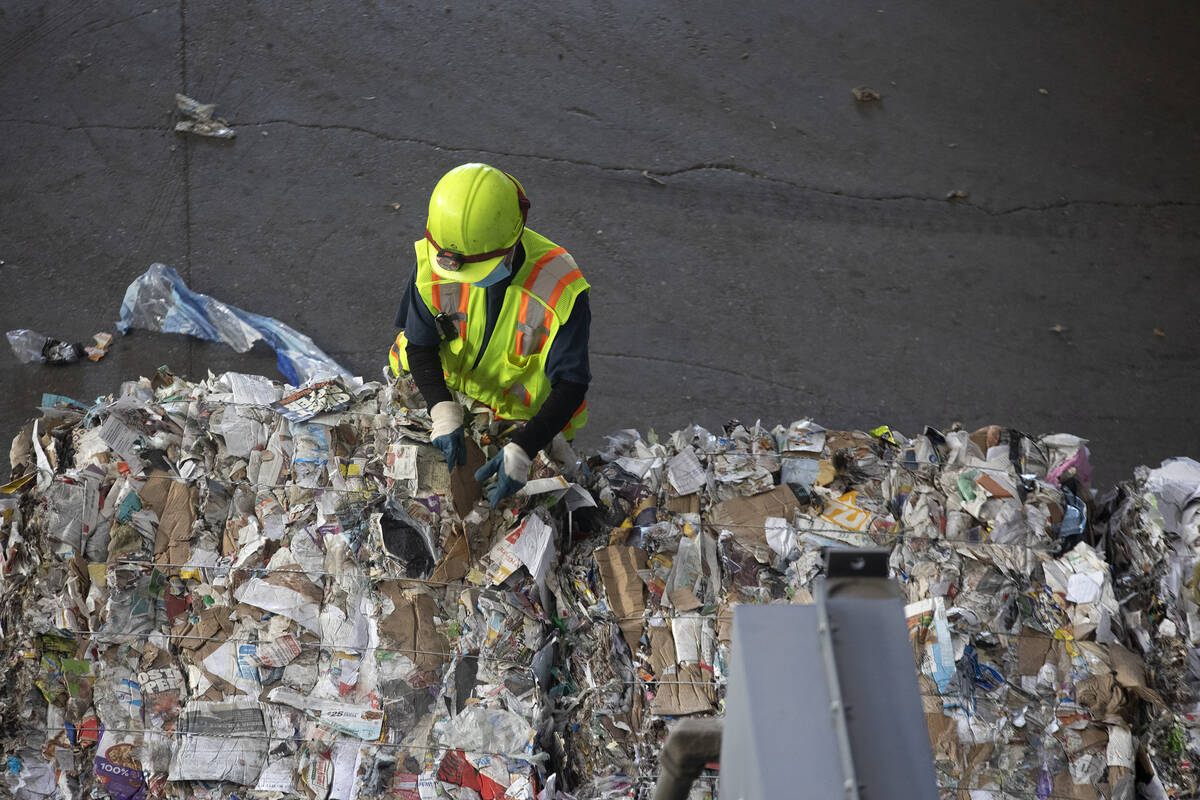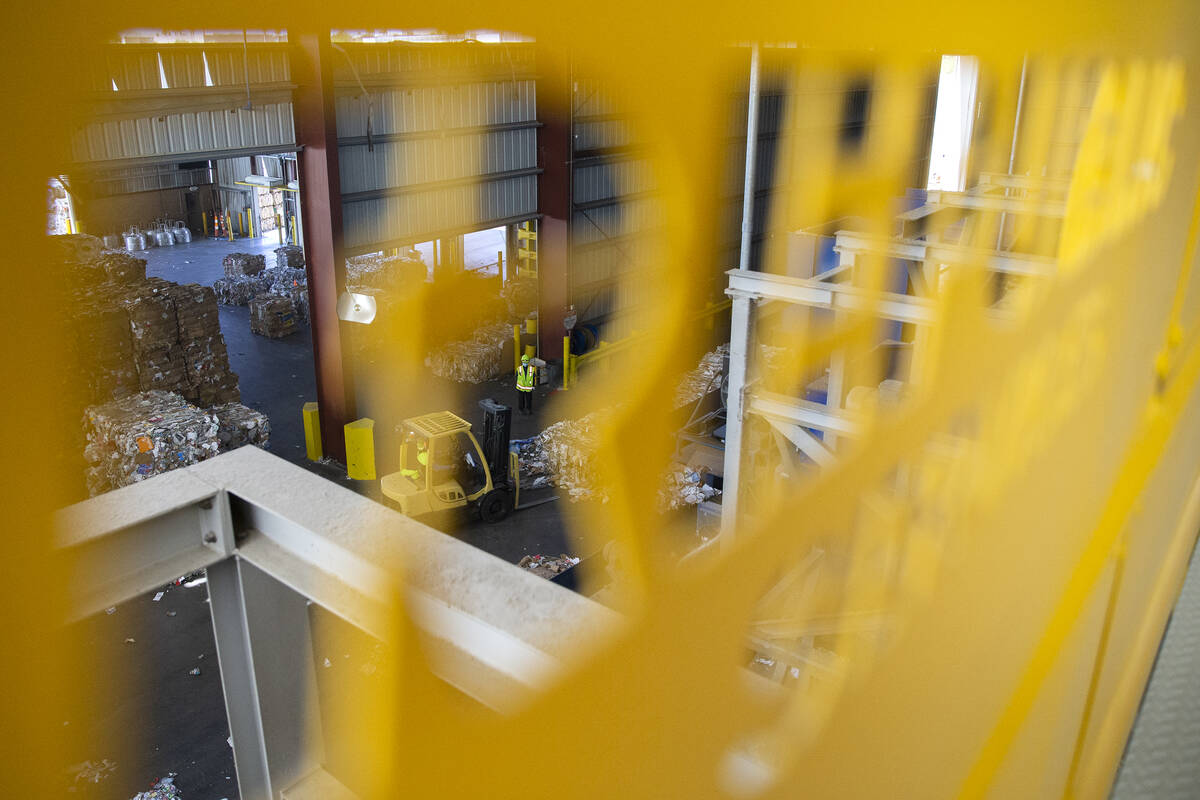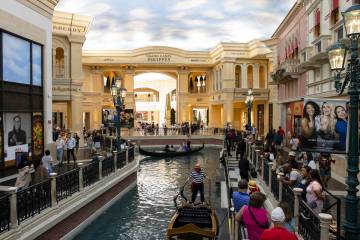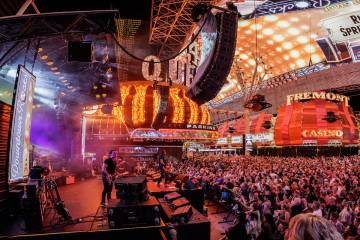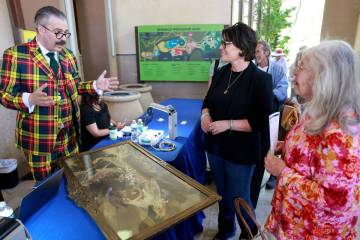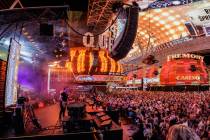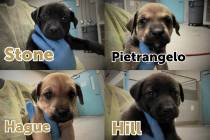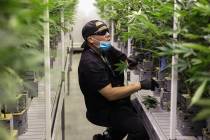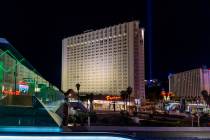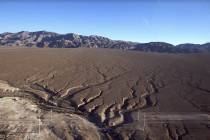A lot can go wrong at the recycling plant. Here’s how you can help stop it
Jeremy Walters spotted a small electric cooler and a ragged, beige car seat cover sitting among a heap of trash outside the 100,000-square-foot recycling plant in North Las Vegas.
A slight stench permeated the air and flies buzzed around the pile, while plastic and aluminum clanked and thundered on the nearby, humming conveyor system.
With a hint of frustration, he swiftly kicked the appliance aside and flung the fabric from the seat into the air.
Walters, a 30-year-old community relations manager for Republic Services, said he was not upset, but rather disappointed that those items were tossed into recycling bins in the first place.
It was hard to imagine how someone could rationalize the seat cover as salvageable, he said. Best-case scenario, the trash is separated, although it is impossible doing so without losing some valuable recyclables.
Other times, improperly disposed junk can jam the heavy machinery that sorts and bundles the materials.
On a bad day, the garbage can spark flames with a potential for disastrous consequences. Fires can start with something as small as a coin-sized lithium battery.
Once punctured and fueled by oxygen, the highly flammable chemical, which also is found on rechargeables such as cellphones and cordless power tools, can instantly ignite, Walters said.
Just two months ago, hundreds of bundles of smoldering cardboard created a massive plume of smoke visible across most of the valley. The likely cause: leaking lithium batteries.
Investigators estimated that the blaze caused about $1.5 million in losses. Torched, melted warehouse panels were still visible weeks later.
About a quarter of the nearly 10 tons of material dumped at what Republic Services describes as the “largest residential recycling center in North America” at 333 W. Gowan Road is non-recyclable garbage, said Walters.
It is not unusual for small fires to break out at the facility “fairly frequently,” Walters said.
Cardboard itself is not combustible, but Republic Services has “reason to believe” the Sept. 13 fire originated from leaking batteries, Walters said.
“It’s very scary when we’re dealing with a facility of this size that has such a vast impact on the broader community,” Walters said.
Damage to the center was “cosmetic,” and none of the 40 to 45 employees present, or the plethora of firefighters who responded, were injured, he said.
The blaze reinforced Walters’ mission as an educator of proper recycling techniques.
Future incidents could prove more catastrophic, he said.
Fires have decimated recycling facilities across the U.S., Walters said, a consequence that would be devastating to the only center that services all Southern Nevada and parts of Arizona and Utah.
“These things pose an inherent risk,” Walters said about the September fire. “We want to make sure we do everything that we can to mitigate that risk for our employees.”
North Las Vegas Fire Department officials closed an investigation into the fire without determining an official cause, noting that no malicious intent was found, spokesman Nino Galloway said.
In the aftermath of the blaze, Republic Services was reassessing its fire-monitoring technology system, which spots flames early, Walters said.
As the holiday season approached, Walters’ message on safe recycling grew more urgent.
Between Thanksgiving and New Year’s Day, Republic Services sees a 25 percent increase in waste, providing an increased opportunity for unsafe recycling.
That is around the time people deep clean their homes and dispose of potentially flammable junk, such as Christmas trees and lights, Walters said.
“A recycling bin is not the place for your bulk waste,” he said. “People try to recycle just about everything.”
The community can play a crucial part in preventing fires at the recycling facility, said Walters, who offered tips on how to safely dispose of garbage.
“Some people say, ‘when in doubt, throw it out,’” Walters noted. “I say, ‘when in doubt, find out.’”
Paper, plastic bottles and jugs, glass bottles, aluminum and metal food tins and cardboard are salvageable, but those items must first be lightly rinsed and packaging must be removed.
A pizza box smothered with sauce is of no use, Walters said. Aerosol cans and chafing aluminum cans used to keep food warm also are combustible.
Single-use alkaline batteries are not as dangerous as lithium, but they also can combust, Walters said. Battery tops should be taped before being placed in a zip-close bag.
“Recycling doesn’t have to be difficult, and it becomes very easy when you make it part of your daily habit … setting things aside, making sure you know what’s recyclable and what’s not,” Walters said.
Safely disposing of electronics can be done at retail stores like Best Buy, he said.
Used light bulbs can be recycled at all Home Depot locations, according to the Nevada Division of Environmental Protection, which recommends using Call2Recycle to find a location to recycle lithium batteries. The website lists several Lowe’s and Home Depot locations.
Preventing fires at recycling centers requires public education and outreach, he said.
“Most people aren’t doing these things with ill intentions,” he said. “They just need to understand the right way to do things, and the wrong way to do things.”
Contact Ricardo Torres-Cortez at rtorres@reviewjournal.com. Follow him on Twitter @rickytwrites.



